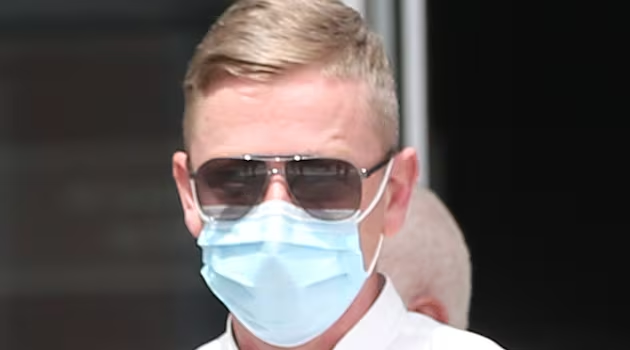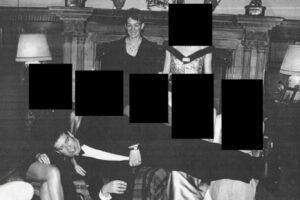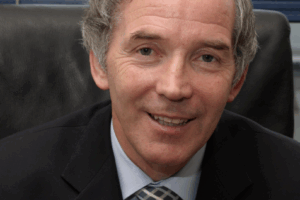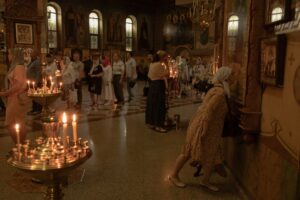
Two weeks ago, Jonathan Dowdall walked out of Limerick Prison and into the shadowy world of witness protection, a world he will probably have to occupy for the rest of his life.
Dowdall (47), a former Sinn Féin councillor, was jailed for four years in 2022 for his role in assisting in the planning of the Regency Hotel shooting in Dublin, which left Kinahan associate David Byrne dead. Dowdall avoided a murder charge by agreeing to give evidence for the State in the prosecution of Gerry Hutch for the shooting.
The Special Criminal Court eventually acquitted Hutch, ruling that Dowdall’s evidence could not be relied upon. However, the State was still obliged to honour the final part of its agreement with him – admission into the Garda’s witness protection programme, officially known as the Witness Security Programme (WSP).
Dowdall served nearly all his sentence in Limerick Prison, far away from Hutch’s Dublin support base. He was kept in a cell in the prison’s high-protection unit, an area recently described by the Council of Europe’s committee for the prevention of torture as “dungeon-like”, lacking access to natural light and ventilation.
For much of his term, the only other inmate on the landing was Barbie Kardashian, a trans female prisoner with a history of violence who, following a ministerial order, was transferred to the men’s section of the prison.
[ How Dowdall became the State’s chief witnessOpens in new window ]
[ The secret Hutch-Dowdall tapes Opens in new window ]
Such is the secrecy of the WSP, many expected Dowdall to be quietly whisked out of prison months before the conclusion of his sentence. But in the end, he served almost the full term, minus 25 per cent remission.
He was released on October 17th, 11 days before his official release date of October 28th. Almost immediately, news of the release was published by the Sunday World.
The aim of the WSP is to ensure that is the last news that will ever emerge about Dowdall’s whereabouts.
The programme is run by a small unit in the Garda’s Crime and Security Intelligence Service with the assistance of the Special Detective Unit.
Much of the work involves liaising with other jurisdictions to find places for entrants to the programme outside the country. In most cases, Ireland is simply too small a country to hide witnesses on the island. In at least one case, participants were relocated within Ireland before ongoing gang threats forced their relocation overseas.
Typically, English-speaking countries are chosen. In the past, participants have been set up with new lives in the United States, Canada and the UK.
It is believed, though not confirmed, that in return gardaí allow other police forces to relocate their own protected witnesses in Ireland.
Typically, participants in the programme are set up with accommodation, a small amount of money and either a job or training. While they can get passports and driving licences in their new names, Irish law currently prevents them being issued with new birth certificates.
[ Supreme Court to consider identity rights of people in witness protection programmeOpens in new window ]
All this costs money – the one area of the WSP where some public information is available.
According to the latest available figures, the State spends about €4 million a year on the programme, a figure made up of general running costs and expenses. That is expected to increase significantly this year due to Dowdall’s relocation.
These relatively small costs reflect the fact that participation in the programme is low. Many potential participants are judged unsuitable or unlikely to comply with the programme’s strict conditions.
Others are put off by the prospect of moving abroad to start a new life, with little or no contact with friends and family at home. Instead, they opt to take their chances in Ireland.
The harsh nature of life in the WSP was detailed by Joey O’Callaghan in the book and podcast The Witness. In 2005, O’Callaghan testified against two men in a murder trial and subsequently, at age 18, became the youngest person to go into Ireland’s witness protection programme. He described a life of poverty, addiction and overdoses before voluntarily leaving the programme and returning to Ireland.
Financial support is kept to a minimum to avoid the perception the witness is being paid for their evidence.
On his release from prison last month, Dowdall was probably taken directly to an airport by armed members of the Special Detective Unit and put on a flight. Once he reaches his new location, he will be reunited with members of his family, including his wife and at least some of his children.
Trying to keep the location of one person a secret in a world filled with camera phones and social media is difficult. Doing it for a whole family, including teenagers, will present a huge challenge. “It’s difficult territory but there is some experience in this area,” said one security source.
Meanwhile, the future use of the programme remains up in the air. It is understood some senior gardaí and officials have questioned its usefulness.
The WSP was set up in 1997 to secure the conviction of members of the Gilligan gang for the murder of journalist Veronica Guerin. However, in the 30 years since, it has seen, at best, mixed success.
Judges have questioned whether granting protection to witnesses, many serious criminals themselves, is a form of inducement. For this reason, courts have sometimes been reluctant to place much weight on participants’ evidence.
This was seen in the trials of Guerin’s accused killers and in the prosecution of Gerry Hutch in 2023.
Other observers have raised concerns that the WSP is not governed by legislation. Attempts have been made to put the programme on a statutory footing but these were fiercely resisted by senior gardaí who worried any additional scrutiny could compromise witnesses’ security.





